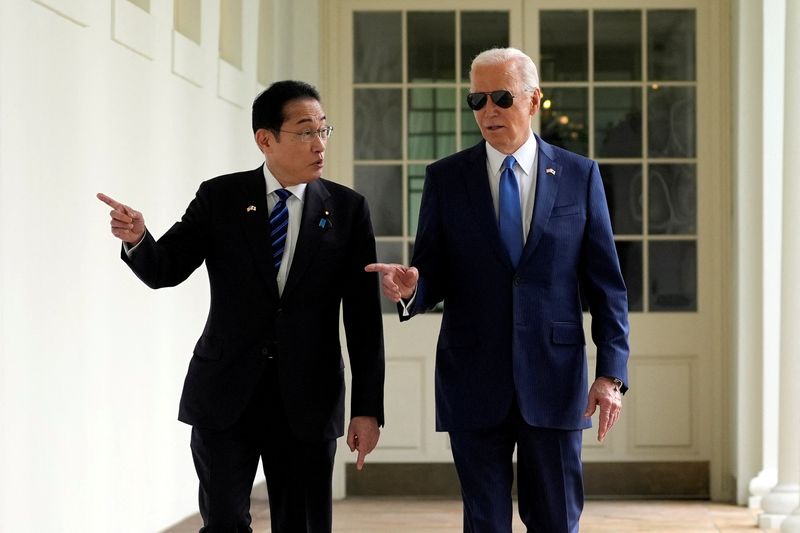WASHINGTON (Reuters) - U.S. President Joe Biden and Japanese Prime Minister Fumio Kishida promised a "new era" of U.S.-Japan strategic cooperation on Wednesday, laying out a series of projects from co-development of missiles to manned moon landings, while condemning China's escalatory behavior in the region.
In a joint statement from a Washington summit, the two said their aim was to build a global security partnership "fit for purpose" for complex, interconnected challenges.
Biden stressed an unwavering U.S. commitment to defend Japan using its full range of capabilities, including nuclear, and the two said Japan's moves to enhance its defense structure and abilities launched "a new era of U.S.-Japan security cooperation."
The two sides said a planned upgrade of their military command-and-control frameworks would enable greater interoperability and planning in peacetime and during conflicts.
The United States and its allies, including Japan, have been building up their militaries to counter what they see as a growing threat from China in areas including the South China Sea and around Taiwan.
Biden and Kishida also announced plans to upgrade defense communications networks and to network air defense capabilities between the U.S., Australia and Japan to counter air and missile threats.
The defense plans will see the two sides establish a forum on defense industrial cooperation that would identify areas for co-development and co-production of missiles and maintenance of U.S. warships and aircraft, the statement said.
They will also establish a working group for fighter pilot training, including AI and advanced simulators, and co-development and co-production of jet trainers.

The leaders announced a shared goal for a Japanese national to be the first non-American to land on the moon in an Artemis mission. Artemis envisages returning humans there by 2026, as competition with Russia and China intensifies.
The joint statement said the existing three partners in the AUKUS defense project were considering cooperation with Japan on advanced capabilities and technologies across a range of areas including quantum computing, undersea, hypersonic, artificial intelligence and cyber technology.